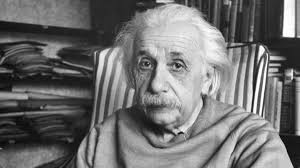By Dennis Edwards
"If you reverse the motion, the outward motions of the stars and galaxies, and go backwards in time, they come closer and closer together. Finally they reach a point where they are nearly infinite in density and temperature, and further than that you cannot go. So, there’s a beginning, a point in time from which it all started. That’s a remarkable thing. It has a strong theological flavor to it, which intrigued me, because I am an agnostic. But if there was a beginning, a moment of creation of the universe, then there was a creator. But a creator is not compatible with agnosticism. I found that point so interesting, that I felt a strong compulsion to share it with others.
Robert Jastrow (1925–2008) was a disciple of Edwin Hubble, the famous American astronomer whose interpretation of the red shift in light from distant galaxies gave rise to the Big Bang Theory. After Hubble died, Jastrow continued with much of his work. He later wrote a book titled God and the Astronomers (W.W. Norton, 1978). In an interview about his faith, or lack of it, he makes an interesting observation. He starts by talking about the implications of Hubble’s red shift:

"That’s what science tells me. I have been a scientist all my life. But I find it unsatisfactory; in fact, it makes me uneasy. I feel I am missing something. But I will not find out what I am missing within my lifetime."1
What an honest, yet sad confession. Here he is facing his last years of life and Jastrow senses that his materialistic worldview has fallen short. He’s apprehensive. He’s unsatisfied and wondering if he’s gotten it wrong. He senses that there has to be more, but his intellectual pride, his lifetime of holding to a materialistic belief system forces him to deny the apparent truth of a Creator. Sadly, he confesses he will go to his grave before he finds the answer.
"This most beautiful system of the sun, planets, and comets could only proceed from the counsel and dominion of an intelligent and powerful being. … This Being governs all things, not as the soul of the world, but as Lord over all; and on account of his dominion he is wont to be called Lord God, or Universal Ruler."

Thomas Jefferson, the third president of the United States, wrote something very similar to Newton. He said:
"So irresistible are these evidences of an intelligent and powerful agent, that, of the infinite numbers of men who have existed through all time, they have believed, in the proportion of a million at least to a unit, in the hypothesis of an eternal pre-existence of a creator, rather than in that of a self-existent universe."2
We see Jefferson, not known as a religious man, but as a Rationalist or Deist, as they were called, also came to the same conclusion as Newton as a result of the “irresistible evidences.”

Even Albert Einstein, not known for faith, said in a 1929 interview:

Einstein thus came to the conclusion from viewing the evidences that there must be a “God” or “mysterious force” that is controlling the universe. Einstein's ideas were more in line with Spinoza's pantheism or the Buddhist cosmic energy, than the Christian-Judeaic God of the Bible, but never the less sound much like arguments used by the Intelligent Design movement.
We see Jefferson, not known as a religious man, but as a Rationalist or Deist, as they were called, also came to the same conclusion as Newton as a result of the “irresistible evidences.”
Even Albert Einstein, not known for faith, said in a 1929 interview:

"We are in the position of a little child, entering a huge library whose walls are covered to the ceiling with books in many different tongues. The child knows that someone must have written those books. It does not know who or how. It does not understand the languages in which they are written. The child notes a definite plan in the arrangement of the books, a mysterious order, which it does not comprehend, but only dimly suspects. That, it seems to me, is the attitude of the human mind, even the greatest and most cultured, toward God. We see a universe marvelously arranged, obeying certain laws, but we understand the laws only dimly. Our limited minds cannot grasp the mysterious force that sways the constellations."
Aerospace engineer Wernher von Braun, who helped put America on the moon, said it a bit differently:


Jastrow’s materialistic philosophy promised him freedom from Christianity’s “archaic” beliefs. But then, at the end of his life, when he senses he could very well be wrong about the whole thing, Jastrow is imprisoned by the philosophy that had promised him liberty. He could not escape its materialistic grasp, as much as he would have liked to. What a sad ending. But Jesus promises a way of escape. We don’t need to go to the grave wondering what is true. When we seek Jesus with all our heart, mind, and soul, He answers. “And ye shall know the truth, and the truth shall set you free.”5 “If the Son therefore shall make you free, ye shall be free indeed.”6
"For me, the idea of a creation is not conceivable without invoking the necessity of design. One cannot be exposed to the law and order of the universe without concluding that there must be design and purpose behind it all. … My experiences with science led me to God. They challenge science to prove the existence of God. But must we really light a candle to see the sun?"3

Some people miss the door of salvation by so little, the distance of their heart to their head. Their pride and unbelief cause them to reject the truth of the gospel. As the apostle Peter so aptly put it: “While they promise them liberty, they themselves are the servants of corruption: for of whom a man is overcome, of the same is he brought in bondage.”4 They become in bondage to their worldly philosophies, which appeared to be the path to freedom, only to fall into the hands of another tyrant demanding unfailing obedience even unto death.
(Watch the documentary The Privileged Planet here.)
1 The Privileged Planet, documentary, directed by Lad Allen (Illustra Media, 2004), DVD, http://www.theprivilegedplanet.com/scientists.php.
1 The Privileged Planet, documentary, directed by Lad Allen (Illustra Media, 2004), DVD, http://www.theprivilegedplanet.com/scientists.php.






0 Comments:
Post a Comment